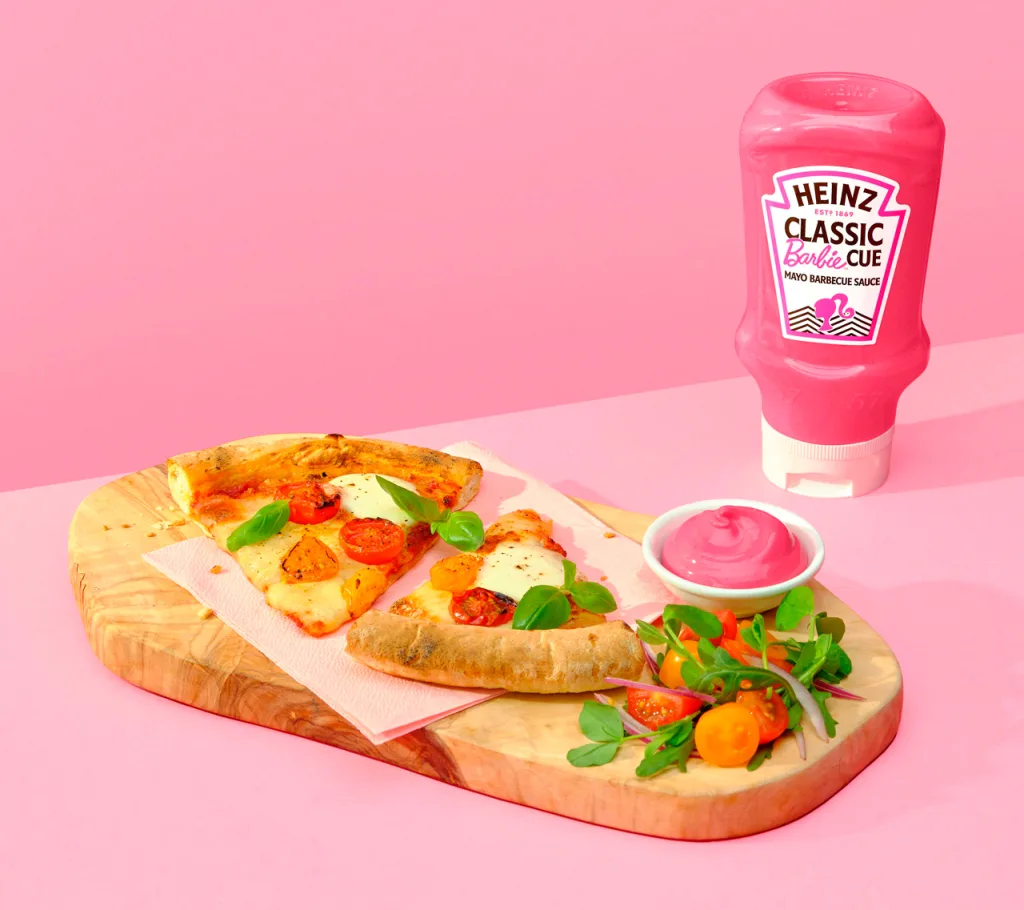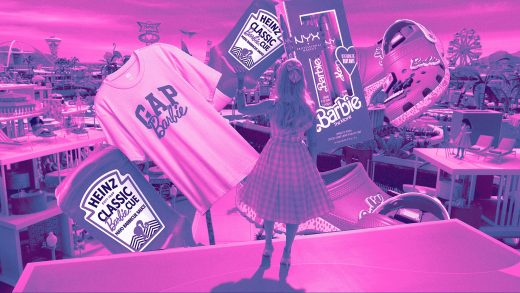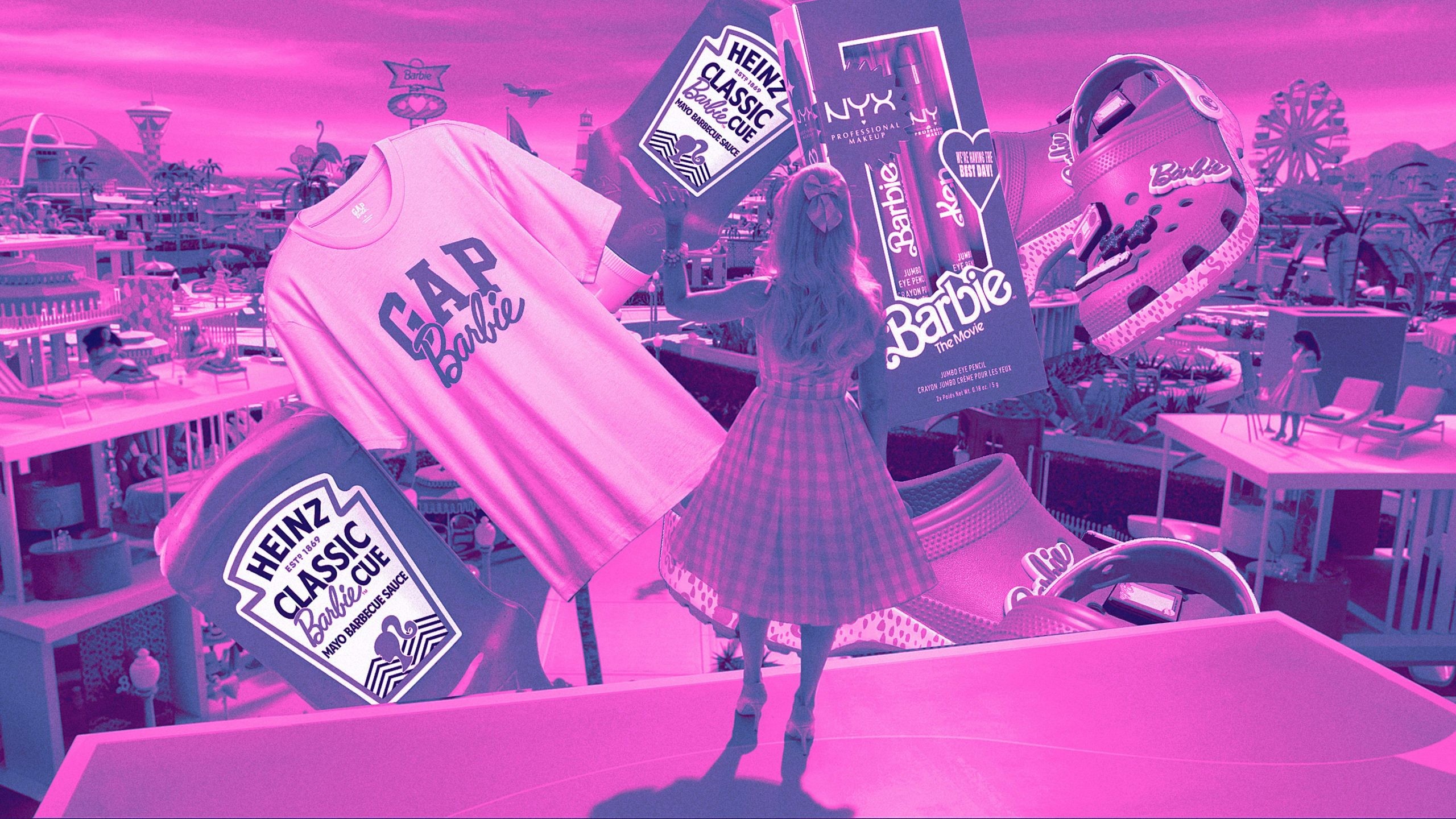It’s time for the Barbie collabs to stop
It’s time for the Barbie collabs to stop
We’re calling for an immediate moratorium on all bright pink objects.
It has been 270 days since the Barbie movie debuted in theaters. Yet it seems like every other day, the film rears its head in another bizarre brand collaboration. It was cute, for a while. But Heinz recently announced an electric pink “Barbiecue” sauce that they will soon release in the U.K. Now that Barbie’s world has effectively infiltrated the condiment aisle, it’s time we put a stop to this marketing frenzy once and for all.
The Barbiecue sauce, which is technically meant to celebrate the iconic doll’s 65th birthday, is just the most recent in a long line of Barbie-related products that launched around the movie’s release. There was a series of fashion collaborations, including lines with Gap, ALDO, and Crocs. And hair products from Kitsch and CHI. There were retro-inspired Barbie palettes with NYX Cosmetics and Barbie skincare from Glow Recipe. Last week, Kartell introduced a line of tiny designer chairs. And those were just the semi-normal ones.

We’ve also seen our fair share of truly off-the-wall partnerships since 2023. Clothes, cosmetics, and furniture are all forgivably within the purview of items a Barbie doll might enjoy. But what about neon pink burger sauce, which was available for a limited time at Burger Kings in Brazil? Would Barbie need a tiny tweezer set from Revlon for her already-hairless face and body? On that note, how about a razor from Athena Club?
And today, Heinz’s Barbiecue is the vegan mayo “cherry” on top of this deluge of branded gear. Heinz is no stranger to wacky condiments or to jumping on the cultural bandwagon (see their Taylor Swift-inspired ranch last year). Sometimes, that strategy pays off, adding more fuel to whatever discourse is currently exploding on Twitter.
But this new release feels just a little bit behind the curve. The company first teased Barbiecue in August, alongside a companion “Kenchup,” (get it?) to poll their audience on whether they should “make this dream a reality.” Then, the answer might’ve been an enthusiastic “yes”—but now, it’s a tepid “meh” at best.
(9)



